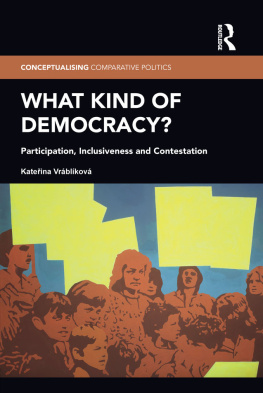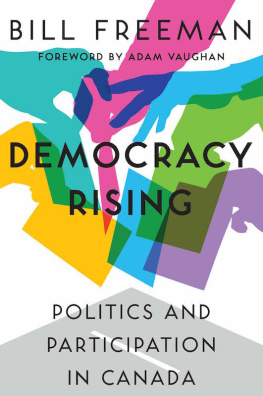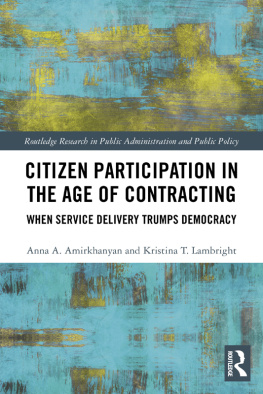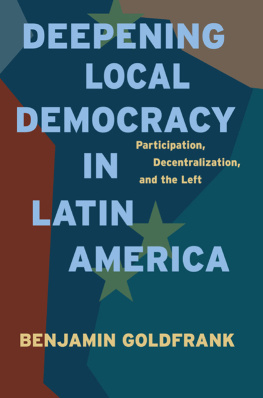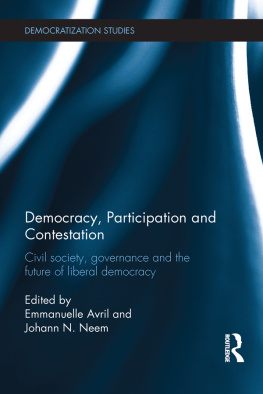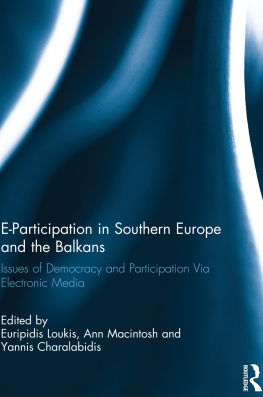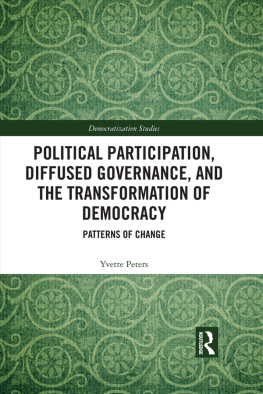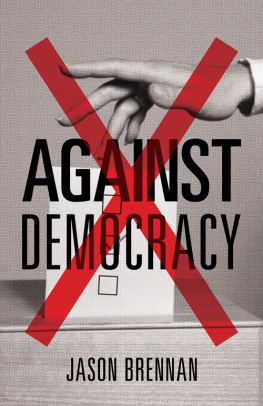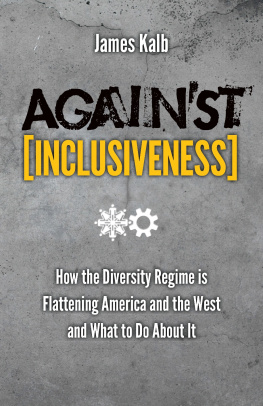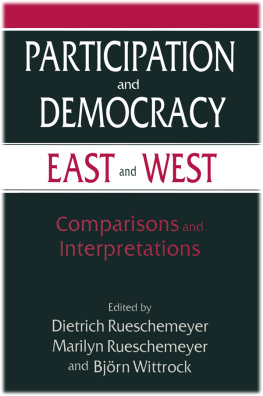Kate Ina Vrablikova - What Kind of Democracy?: Participation, Inclusiveness and Contestation
Here you can read online Kate Ina Vrablikova - What Kind of Democracy?: Participation, Inclusiveness and Contestation full text of the book (entire story) in english for free. Download pdf and epub, get meaning, cover and reviews about this ebook. year: 2016, publisher: Routledge, genre: Politics. Description of the work, (preface) as well as reviews are available. Best literature library LitArk.com created for fans of good reading and offers a wide selection of genres:
Romance novel
Science fiction
Adventure
Detective
Science
History
Home and family
Prose
Art
Politics
Computer
Non-fiction
Religion
Business
Children
Humor
Choose a favorite category and find really read worthwhile books. Enjoy immersion in the world of imagination, feel the emotions of the characters or learn something new for yourself, make an fascinating discovery.
- Book:What Kind of Democracy?: Participation, Inclusiveness and Contestation
- Author:
- Publisher:Routledge
- Genre:
- Year:2016
- Rating:5 / 5
- Favourites:Add to favourites
- Your mark:
- 100
- 1
- 2
- 3
- 4
- 5
What Kind of Democracy?: Participation, Inclusiveness and Contestation: summary, description and annotation
We offer to read an annotation, description, summary or preface (depends on what the author of the book "What Kind of Democracy?: Participation, Inclusiveness and Contestation" wrote himself). If you haven't found the necessary information about the book — write in the comments, we will try to find it.
What Kind of Democracy?: Participation, Inclusiveness and Contestation — read online for free the complete book (whole text) full work
Below is the text of the book, divided by pages. System saving the place of the last page read, allows you to conveniently read the book "What Kind of Democracy?: Participation, Inclusiveness and Contestation" online for free, without having to search again every time where you left off. Put a bookmark, and you can go to the page where you finished reading at any time.
Font size:
Interval:
Bookmark:
Edited by Anthony Spanakos (Montclair State University) and Francisco Panizza (London School of Economics)
The Politics of Financial Crises in Comparative Perspective
Edited by Francisco Panizza and George Philip
State Secularization in Turkey, Iran and Russia
Birol Bakan
Actors and Articulations in Africa and Beyond
Lucy Koechlin and Till Frster
Edited by Anthony Petros Spanakos and Francisco Panizza
State-Diaspora Relations in the Latin American-Southern Europe Corridor
Ana Margheritis
Participation, Inclusiveness and Contestation
Kateina Vrblkov

by Routledge
711 Third Avenue, New York, NY 10017
2 Park Square, Milton Park, Abingdon, Oxon OX14 4RN
Names: Vrblkov Kateina, author.
Title: What kind of democracy? : participation, inclusiveness and contestation / Kateina Vrblkov.
Description: Abingdon, Oxon ; New York, NY : Routledge is an imprint of the Taylor & Francis Group, an Informa Business, [2016]
Identifiers: LCCN 2016008115| ISBN 9781138653764 (hbk) | ISBN 9781315623603 (ebk)
Subjects: LCSH: Political participationCross-cultural studies. | Social movementsPolitical aspectsCross-cultural studies. | Political cultureCross-cultural studies. | DemocracyCross-cultural studies.
Classification: LCC JF799 .V73 2016 | DDC 321.8dc23
LC record available at https://lccn.loc.gov/2016008115
ISBN: 978-1-315-62360-3(ebk)
by Saxon Graphics Ltd, Derby
Font size:
Interval:
Bookmark:
Similar books «What Kind of Democracy?: Participation, Inclusiveness and Contestation»
Look at similar books to What Kind of Democracy?: Participation, Inclusiveness and Contestation. We have selected literature similar in name and meaning in the hope of providing readers with more options to find new, interesting, not yet read works.
Discussion, reviews of the book What Kind of Democracy?: Participation, Inclusiveness and Contestation and just readers' own opinions. Leave your comments, write what you think about the work, its meaning or the main characters. Specify what exactly you liked and what you didn't like, and why you think so.

